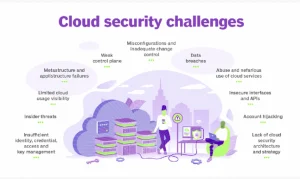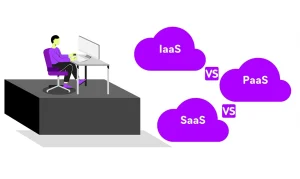How AI In Cybersecurity Transforms The Security Trends?
Artificial intelligence (AI) is no longer a buzzword only heard in science fiction movies. It’s a rapidly growing field that’s changing the way we live, work and interact with technology. The cybersecurity industry is no exception. In recent years, AI has revolutionized the way businesses approach cybersecurity, offering new opportunities to detect and prevent cyber attacks. In this blog, we will take a closer look at how AI is changing the status of the cybersecurity industry.
Introduction
The world is becoming increasingly dependent on technology, and as a result, the threat of cyber attacks is growing. In this new digital age, cyber attacks can come from anywhere and anytime, putting sensitive information and business operations at risk. Traditional cybersecurity measures are no longer enough to keep businesses safe, and that’s why AI is becoming a key player in the cybersecurity industry.
AI is transforming the cybersecurity industry in numerous ways. From detecting and preventing cyber-attacks to predicting and mitigating security risks, AI technology is revolutionizing the way businesses protect their digital assets. AI algorithms help organizations to identify patterns, anomalies and potential security threats much more efficiently than humans can. As a result, AI is becoming an increasingly crucial tool for businesses looking to secure their networks and data.
What is AI in Cybersecurity?

AI in cybersecurity refers to the use of machine learning algorithms, deep learning, and other AI technologies to identify, prevent and mitigate cyber threats. AI-powered systems can analyze vast amounts of data to identify patterns and anomalies that may indicate a cyber attack. They can also be programmed to automatically respond to a threat an d protect critical systems, reducing the need for manual intervention.
How AI is Changing the Status of the Cybersecurity Industry?
-
Early Threat Detection and Prevention
One of the biggest advantages of AI in cybersecurity is its ability to detect threats early. AI-powered systems can analyze large amounts of data in real-time to identify patterns and anomalies that may indicate a cyber attack. This can help businesses to respond quickly and prevent the attack before it causes significant harm.
-
Automated Threat Response
Another significant advantage of AI in cybersecurity is its ability to automate threat response. AI-powered systems can be programmed to respond automatically to a threat, reducing the need for manual intervention. This can help businesses to respond more quickly and effectively to a cyber attack, minimizing the damage and protecting critical systems.
-
Improved Threat Intelligence
AI-powered systems can also help to improve threat intelligence. They can analyze vast amounts of data to identify new and emerging threats, allowing businesses to stay ahead of the curve and stay prepared for any new cyber attack. This can help businesses to be proactive in their cybersecurity efforts, rather than simply reactive.
-
More Efficient Cybersecurity Operations
AI in cybersecurity can also help to make cybersecurity operations more efficient. By automating certain tasks and reducing the need for manual intervention, AI-powered systems can help businesses to save time and resources. This can help businesses to be more efficient in their cybersecurity efforts, freeing up resources that can be used for other critical tasks.
-
Cost-Effective Cybersecurity Solutions
AI in cybersecurity can also offer cost-effective solutions for businesses. By automating certain tasks, reducing the need for manual intervention, and improving the efficiency of cybersecurity operations, AI-powered systems can help businesses to save money. This can make cybersecurity more accessible to smaller businesses that may not have the resources to invest in traditional cybersecurity measures.
Related:- All-In-One Guide For Conversational AI & Productivity Hacks
Need of AI in Cybersecurity Industry

Artificial Intelligence (AI in Cybersecurity) has become increasingly important in the cybersecurity industry due to the growing complexity and sophistication of cyber attacks. Hackers are continuously improving their techniques, and traditional security methods are no longer enough to protect against modern cyber threats. AI-based cybersecurity solutions can help organizations detect and respond to cyber threats in real-time, and here are some reasons why it is essential:
- Enhanced Accuracy: AI algorithms can process vast amounts of data and identify potential security issues with higher accuracy than humans, reducing the risk of false positives and negatives.
- Automated Security: AI can be used to automate many security tasks, such as patch management and vulnerability assessments, freeing up security teams to focus on more critical tasks.
- Predictive Analytics: By analyzing past attack data, AI can predict the likelihood of future attacks and help organizations take preemptive measures to mitigate risk.
- Cloud Security: With the rise of cloud computing, organizations are increasingly storing sensitive data in the cloud. AI-based cybersecurity solutions can help protect cloud infrastructure from threats and detect suspicious activities.
- User Behavior Analytics: AI can analyze user behavior to identify anomalies and potential threats, such as insider threats or compromised user accounts.
- Scalability: AI-based cybersecurity solutions can scale with the size of the organization and the volume of data it generates, making them ideal for large enterprises.
- Cost-effective: AI-based solutions can automate many security tasks, reducing the need for human resources and potentially lowering costs.
Tips for using AI in Cybersecurity
- Keep AI models up-to-date with the latest cyber threats and attack techniques.
- Use a combination of human and machine intelligence to detect and respond to cyber threats.
- Implement a comprehensive cybersecurity strategy that includes AI-based solutions.
- Ensure that the data used to train AI models is accurate, diverse, and unbiased.
- Regularly test and evaluate AI-based cybersecurity solutions to ensure their effectiveness.
- Work with cybersecurity experts to ensure that AI-based solutions are implemented correctly and in line with best practices.
- Consider using open-source AI tools to build custom cybersecurity solutions.
- Be transparent about the use of AI in cybersecurity and provide clear explanations of how the technology works.
Related:-Chat GPT Hacks You Should Know For Business Productivity 2023
Challenges of AI in Cybersecurity
While AI has many advantages in the cybersecurity industry, it also presents some challenges. One of the biggest challenges is the risk of false positives. AI-powered systems can sometimes identify false threats, which can lead to false alarms and waste time and resources. Another challenge is the risk of AI-powered systems being hacked. AI-powered systems can be vulnerable to hacking just like any other technology, and if a cyber attacker gains control of an AI-powered system, they can use it to launch cyber attacks.
Conclusion
As AI continues to advance and become more sophisticated, it is playing a crucial role in changing the cybersecurity industry. With the ability to detect and respond to threats in real-time, AI is allowing organizations to take proactive measures to protect their networks and data. While there are still challenges to overcome, the impact of AI on cybersecurity is undeniable and will only continue to grow in the future.







